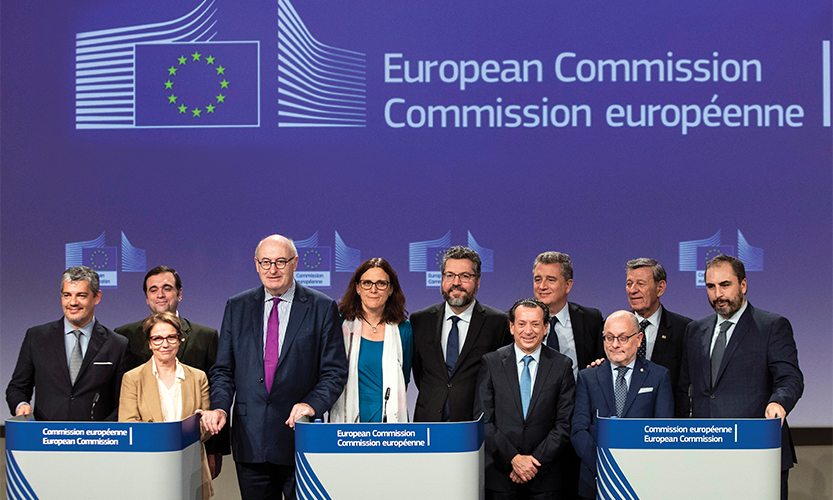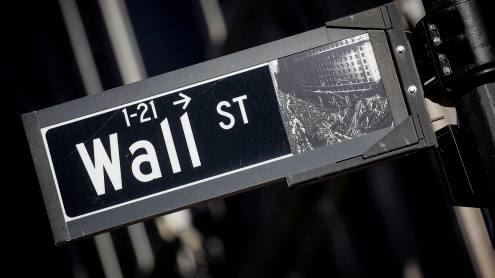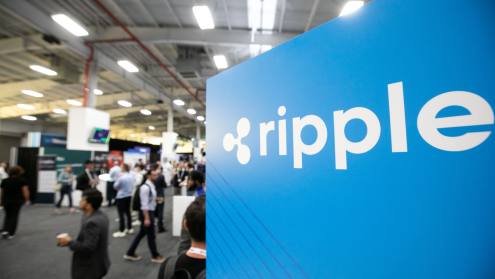Dozens of financial professionals flocked to the Intercontinental Hotel in Madrid in early July 2019 to celebrate the agreement between the EU and Mercosur, the customs union between Brazil, Argentina, Uruguay and Paraguay. The landmark trade deal had been announced a few days earlier, and executives from Spanish groups Santander and Telefónica and Brazil’s Bradesco attended the event held by the Brazil-Spain Chamber of Commerce. A series of concessions had been negotiated over meat and other products and a compromise had been reached.
“We are very optimistic,” says Fernando Pierri, head of global trade services at Santander Brasil. The Spanish bank is in a privileged position, at least geographically, thanks to its strong presence not only in Europe but also in the Mercosur countries. More than one-quarter of the bank’s global earnings come from Brazil, the largest market in the region. Unlike many other international banks that have left the turbulent Brazilian market in recent years, Santander has built up its position and is now the largest foreign bank in the country (ranking fifth overall, in terms of assets, just behind the ‘big four’ of Itaú Unibanco, Banco do Brasil, Bradesco and Caixa Econômica). The bank is also active in Argentina and Uruguay.
Thanks to its current position in markets on both sides of the Atlantic, Santander is now well positioned to enjoy the EU-Mercosur tailwinds. “The bank has recently set up a new business area called global trade and services, which connects all its entities around the world. Now there is only one team that looks at all aspects of the business related to foreign trade [such as foreign exchange and trade finance],” says Mr Pierri. Meanwhile, the bank has been holding events in chambers of commerce across Europe and Latin America to “tell our clients where the opportunities are”, adds Mr Pierri. Opportunities, he insists, are massive due to the potential increase in trade.
But Santander will not be the only bank chasing these opportunities. “European banks have been quite active here historically,” says Henrique Meirelles, finance secretary of the state of São Paulo and Brazil’s former finance minister. “They should have an equal share of the business with Brazilian banks in Brazil.”
A momentous occasion
The agreement will affect more than 90% of the trade between the EU and Mercosur, which amounted to $100.1bn in 2018. Brazilian officials expect an increase in exports by a similar amount by 2035. “It’s a big deal,” Marcos Troyjo, Brazil’s deputy foreign trade minister, told a business conference hosted by BTG Pactual in São Paulo in August. “It deals with intellectual property, with geographic origins, government purchase, agriculture, industry, cabotage, banking services… it’s really big.” Brazilian officials also expect a gross domestic product (GDP) boost of $125bn and additional foreign direct investment of $113bn in the next 15 years.
Jointly, the EU-Mercosur area is home to 780 million consumers and almost one-quarter of global GDP, according to Brazilian officials. “If you are a Japanese company that intends to invest in Brazil, the Mercosur horizon is one thing, but if you think in terms of EU-Mercosur, your strategic planning is completely different,” Mr Troyjo told the event. “The strategic planning of any company must now take into consideration that Mercosur and the EU now are an economy of more $20,000bn and 25% of the world’s GDP. It is a reality. It is going to happen.”
Santander’s Mr Pierri has also been doing his sums. He considers that only 15% to 20% of Brazil’s $420bn foreign trade is currently being financed by banks. “There is room for more banking credit,” he says. “Today we have 48,000 companies which engage in foreign trade activities in Brazil, importing or exporting, but only 30,000 of them are actually both exporting and importing. These figures are very small when you compare them with the number of small and medium-sized enterprises [SMEs] we have in the country [5 million]. I believe that this trade agreement will completely change this picture.
“Usually our foreign trade activities have focused on big companies. Now it will be on SMEs, which have been less active in foreign trade. There is a great growth opportunity in foreign trade and it is a good business for banks. We do not have a public figure regarding this. But for sure, our SME target is quite aggressive, as we want to be leaders in this segment.”
Sergio Rial, Santander’s CEO in Brazil and regional head for South America, has also hinted at a boost in microfinance, declaring that the number of clients of the bank’s Prospera programme, which focuses on microcredit, may increase from the current 350,000 to 1 million in the medium term.
European dissent
The implementation of the EU-Mercosur agreement will undoubtedly take time. The ratification process by the respective parliaments has not even begun, and could take more than two years.
There have already been some setbacks. France and Ireland have been under pressure from their strong agricultural lobbies, which are opposed to the free-trade deal. French president Emmanuel Macron also blamed his Brazilian counterpart, Jair Bolsonaro, for not respecting his environmental commitments regarding the Amazon rainforests after widespread evidence of a strong increase in forest fires and deforestation in the area. France’s agriculture minister said the French parliament would not ratify the EU-Mercosur deal.
“Under normal circumstances, any parliamentary approval in France and Ireland would have been difficult. But a very unhealthy atmosphere has been created,” says Rubens Ricupero, a veteran Brazilian diplomat. “The future is very murky. You would need to change the Brazilian environmental policy and actually protect Amazonia in order to improve the atmosphere. I am not sure this is going to happen.”
Bankers undaunted
Nevertheless, bankers remain confident that business interests will prevail on both sides of the Atlantic. “Overall, it is a great opportunity for Brazil to become more competitive,” says Sandrine Ferdane, president of the Brazilian subsidiary of BNP Paribas in São Paulo and president of the French Brazilian Chamber of Commerce. “There will be a lot of business opportunities and more trade finance. This agreement with the EU is very promising, and that is the dominant view among members of the chamber.”
Bradesco chief economist Fernando Honorato adds: “Institutions always prove to be more important than political rhetoric. A cool-headed approach will also lead to pragmatism on environmental issues.”
The Institute of International Finance expects that the EU-Mercosur deal will be a source of growth for financial institutions in both regions. “There will be a positive impact through different channels in the medium term,” says Martin Castellano, the institute’s Latin America chief economist. “A significant boost in trade for the Mercosur countries,” he says, will mean “the financing part will also benefit banks and other financial institutions. We will see an increase in corporate lending for banks.” He also expects opportunities for banks in terms of financing investment projects linked to the trade sector and infrastructure.
There will also be an impact on public policies, according to Mr Castellano. “There is going to be more pressure on the public sector to become more proactive and eager to provide better services and better infrastructure. This will be an incentive for governments to create better conditions for companies to operate,” he says. “The agreement will encourage us to have healthy economic policies. It will oblige us to have a well-organised economic policy, in terms of tax, infrastructure, and so on. We will have to become competitive because markets will be open to imports.”
The importance of reform
Meanwhile, Itaú Unibanco chief economist Mário Mesquita says that the Brazilian government has to push a reform agenda forward. “The pension reform [which was already approved by the lower house and is expected to be voted on by the Senate by the end of October] is important for the solvency of the government, but the tax reform is actually more important in order to remove those distortions and make the economy more productive. We have to deal with this in order to be able to compete with European economies,” he says.
Brazilian tax regulations will have to be simplified so that companies do not have to spend so much time complying with their tax obligations, Mr Mesquita adds. According to the World Bank’s Ease of Doing Business survey, a medium-sized company in São Paulo or Rio de Janeiro spends an average of 2000 hours on paying its taxes, which is far more than most of its competitors would spend – Brazil ranks 184th out of 190 countries in the World Bank ranking for paying taxes.
The period of time between the announcement of the trade agreement and its implementation will leave some time for Brazil to act. “This will allow time for Brazil to approve more reforms [such as the tax reform and concessions to boost infrastructure]. Companies would also have some more time to become more competitive,” says BNP Paribas’ Ms Ferdane. This would lead to stronger growth and a greater export potential. “Brazil can hardly be considered as a good export platform at the moment due to the very weak competitiveness of the country,” she adds.
Brazil’s way in
Rubens Barbosa, Brazil’s former ambassador to the US who now heads the Brazilian wheat producers’ association Abitrigo, has celebrated the announcement of the trade deal as “the end of Brazil’s and of Mercosur’s isolation”. Until now, Brazil only had trade agreements with Israel, Palestine and Egypt.
“This agreement may be the passport to Brazil’s entry to the league of great trading nations,” trumpeted Robson Braga de Andrade, president of Brazil’s National Confederation of Industry, in a communiqué. Shortly after, Brazil and its Mercosur partners announced another trade deal with the European Free Trade Association, which includes Switzerland, Norway, Liechtenstein and Iceland.
But the Brazilian economy is in a dual position. The very competitive agribusiness sector is eager to conquer new markets in Europe (although some sensitive products, such as meat and sugar, will be submitted to quotas during a transition period). Meanwhile, the local industry, which has long been protected by tariffs, may suffer something of a shock.
“Brazil is not prepared for this. There is no roadmap, except maybe for the car industry,” says Stefan Salej, vice-president of the foreign trade council of São Paulo’s industry federation. “It will be a radical change. If Mercosur countries do not invest in the modernisation of the subsidiaries of companies, they will not be competitive.”
Local economists acknowledge that the Brazilian economy has remained closed for too long. “Brazil has experienced a period of trade opening in the early 1990s, and then the process stalled. [The EU-Mercosur agreement] would be the most consistent initiative in favour of trade opening since the early 1990s,” says Itaú Unibanco’s Mr Mesquita. “The most interesting aspect of trade liberalisation is that it leads the economy as a whole to become more efficient.
“We now have an administration that attaches great importance to trade opening, which has not been the case in recent years, not only during the [left-wing] governments [2003-2016] but also under other governments… As Brazil opens up its economy, it will have to compete with European countries, which are efficient, and it will have to sort out its problems and correct distortions.”
Bradesco’s Mr Honorato agrees, saying: “There is now a chance to broaden the scope of trade and integrate value chains.”
Hurdles to overcome
The fortunes of the controversial EU-Mercosur trade deal will ultimately depend on politicians from both sides of the Atlantic. France’s Mr Macron still has to convince the agricultural lobby at home of the benefits of free trade, and overcome the fierce resistance from environmental groups in Europe to dealing with Brazil. There may also be opposition in Argentina and even Brazil.
“The agreement was the outcome of the work done by some economists who are genuinely liberal. But Mr Bolsonaro is much more like Donald Trump – he is not a free trader, he is a nationalist,” says Oliver Stuenkel, an international relations professor at the Getulio Vargas Foundation, a São Paulo business school. “My impression is that deep down Mr Bolsonaro does not want to [ratify] this agreement.”
Mr Bolsonaro himself has publicly said he would rather sign a free-trade agreement with the US and his “friend” Mr Trump. “The likely change of government in Argentina also creates some uncertainty regarding the likelihood of the ratification of the agreement,” says Mr Stuenkel. The business community that celebrated the agreement at the chambers of commerce in Spain and elsewhere will now have to push hard for the deal to become a reality.












